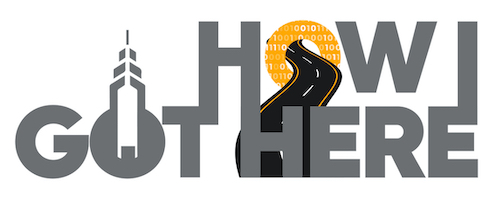If there’s one thing that Cisco VP Waldo McMillan wants someone interested in tech policy to know, it’s that (to borrow an overused trope) every company really is a tech company — and thus looking for tech experts.
“Just know that this is a huge, huge landscape, and don’t just focus in on what you believe are traditional tech companies,” McMillan told Technical.ly. “Look at all of the sectors and industries out there, because there’s a large tech component in all of them and each and every one of them can use tech experts to help them.”
McMillan, who boasts nearly two decades of tech policy work under his belt, currently serves as VP and head of government affairs for Cisco’s DC office. But before all that, he was a student with an interest in politics and dreams of heading to law school.
While studying political science at Howard University, McMillan landed a spot in a fellowship program for U.S. Senator Harry Reid. He was offered a job in the leadership office upon graduation but turned it down to attend law school at the University of Pennsylvania. He kept the connection, though, and eventually landed a job with Reid three years later, in the fall of 2004. There, he handled many of the office’s tech initiatives and developed relationships with tech lobbyists, as well as people in the Senate Commerce Committee.
He was intrigued by tech at a time when so much about the industry remained unknown. Many peers thought about tech policy in terms of antitrust cases and the beginnings of the net neutrality debate. While he worked in that office from 2004 to 2007, he added, tech policy mainly focused on legacy telephone and cable companies and broadband, as opposed to the tech itself.
“It was like this frontier of issues of, what does the next 10, 15, 20 years look like in this space as it’s growing, as its burgeoning?” McMillan said. “So I just fell in love with it.”
But that changed as McMillan moved through his career. In 2007, he took a role at the One Economy Corporation, an organization he worked with at Sen. Reid’s office, as the VP of public policy and general counsel. He then took a counsel role in the law firm Bryan Cave’s public policy and government affairs practice group, which focused heavily on tech and telecommunications issues. There, he counted such tech and communications giants as Microsoft and Comcast among his clients. Four years later, he took that expertise into his own firm, Capstone Counsel Group.
By then, it was 2012, and the era of the smartphone had begun. As that technology grew, McMillan said, it changed the way that everyone looked at the digital divide.
“It was no longer an issue of whether or not individuals would have access to a computing device,” McMillan said. “It was really about, okay, now that they have access to a computing device, what type of access can they have to help them? ”
In 2015, McMillan left his firm and became the VP of legislative affairs at Charter Communications, where he stayed for six years. He notably developed the company’s diversity and inclusion plan, which led to the hiring of its first chief diversity officer.
Now, as a leader for Cisco in DC, McMillan pulls from all of his experiences to lead government affairs and global public policy teams. He appreciates his current position because of how much he gets to partner with governments as well as private sector customers.
He also mentioned the broader debates around social media’s role in society, which he said points to why it’s important to balance innovation with regulation correctly — process that requires intelligent people in tech policy roles.
“It’s important that smart people, well-meaning people are getting involved in this space and that we’re actually having honest conversations around: How are we going to ensure that tech policy going forward will help either preserve or even make society more open and better?” McMillan said.
If there’s one thing he’s learned from his tech policy career, it’s to trust your gut instinct and follow your passion. Doing that, he thinks, means you’ll always end up where you want to be.
“If you’re listening to that voice inside that always drives you to do the things you care about, the things you’re passionate about, you’re going to find yourself at the place you need to be,” McMillan said.

This editorial article is a part of How I Got Here Month of Technical.ly's editorial calendar.
Before you go...
Please consider supporting Technical.ly to keep our independent journalism strong. Unlike most business-focused media outlets, we don’t have a paywall. Instead, we count on your personal and organizational support.
Join our growing Slack community
Join 5,000 tech professionals and entrepreneurs in our community Slack today!

The person charged in the UnitedHealthcare CEO shooting had a ton of tech connections

From rejection to innovation: How I built a tool to beat AI hiring algorithms at their own game

Where are the country’s most vibrant tech and startup communities?


